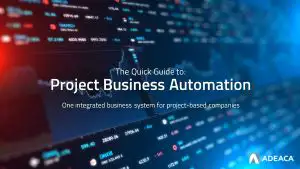Traditionally, the IT department has been the impetus behind a company’s decision to transition its business processes to the cloud. Although CEOs and CFOs went along with the move, they often did so reluctantly.
As cloud implementations became more widespread, many CEOs were comfortable transitioning such functions as HR and marketing to cloud. However, because of concerns about security and managing risk, they opted to keep vital and mission critical processes, such as ERP (enterprise resource planning), on premises.
But things have changed. Today, CEOs and CFOs are embracing the cloud. In fact, 95% of 1,900 C-level executives have a five-year cloud strategy in place, according to research from Accenture.
And 89% of respondents agree that implementing cloud strategies is a competitive advantage, allowing their companies to leverage innovation through agility, the report notes.
The study also finds that the business executives are more informed about the benefits of public and hybrid cloud deployments, “shunning dated opposition and doubts.”
Increasingly, CEOs and CFOs are willing to transition their ERP processes, including finance, to the cloud. Doing so enables purchasing, design, supply chain, manufacturing, and project management, for instance, to be connected seamlessly.
In addition to having to make better, faster decisions, CEOs find that their large customers, suppliers and partners demand timely information from the business. “The requirements for integration today are greater than ever before,” notes Joshua Greenbaum, a consultant at Enterprise Applications Consulting, in an article in Chief Executive.
CEOs also understand that implementing cloud-based ERP systems for functions such as finance, manufacturing, and supply chain management can eliminate long-term investments in favor of pay-as-you-go expenditures, according to Deloitte.
Additionally, companies can scale up or scale down depending on their business needs, freeing up cash for other investments, Deloitte notes.
Business executives point to a number of benefits of transitioning their ERP systems to the cloud, including the fact that it’s easier to implement and use; it offers greater flexibility, e.g., system configuration and pricing is more flexible; lower total cost of ownership (TOC) as companies can save 30% to 50% compared to on-premise ERP; and there’s less dependency on IT and/or on-premise hardware, according to another Accenture study.
Traditionally CFOs have resisted moving away from on-premises ERP solutions. Now, however, more CFOs are embracing migrating their companies’ core ERP functions to the cloud “as a way to gain efficiencies, reduce costs and achieve the flexibility required for digital transformation,” according to an article in TechTarget.
Moving ERP to the cloud, also enables CFOs to automate the integration of financial data from across the business and consolidate that data in real time.
The time may be right for cloud-based ERP for many firms, especially those that are looking to reinvent themselves for digital transformation, Greenbaum says in the TechTarget article.
“[If] you want to be a more customer-centric company and start compiling data on your demand curve or multichannel sales and marketing environment, you can’t do that the old way,” he says. “Everything needs to be upgraded, and one of those core elements will be financials.”










